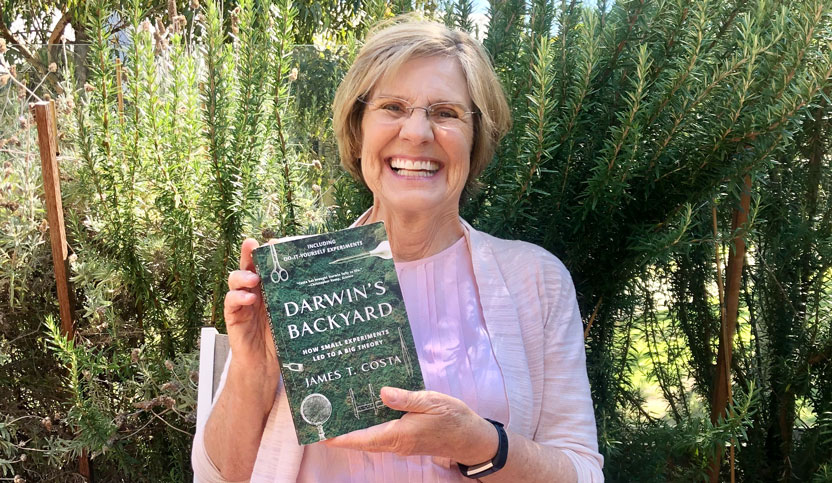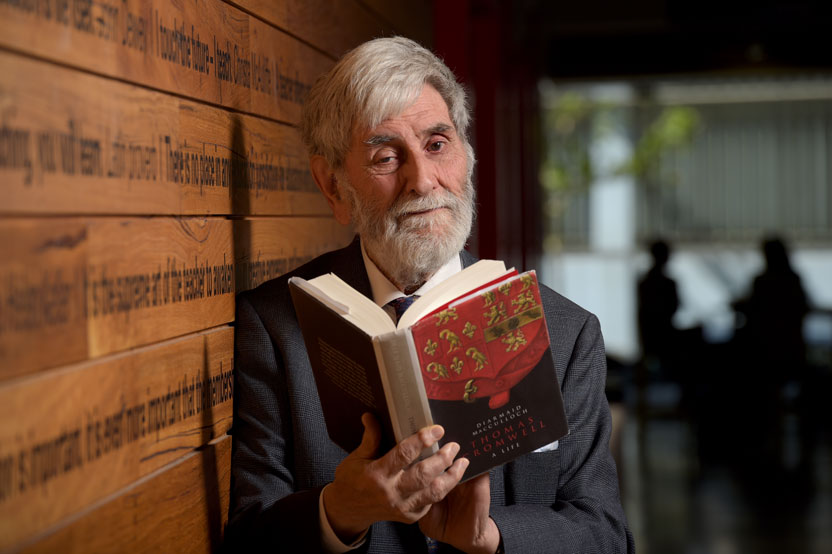Academy Fellows recommend books and podcasts to enjoy this summer
- 4 mins read


What are the biggest questions facing humanity? What are the secrets and motivations behind Darwin’s scientific journey? How might a small Australian country town react to a terrible crime event? These questions, and many more, are tackled in the Annual Fellows’ Christmas book and podcast list 2019.
As we have for the past four years, we asked our Fellows to provide their top book suggestions for the year—and this time we’ve included a few podcasts in the list too.
Of the 51 recommendations, there is sure to be something of interest for everyone. Many of the books are of a scientific bent, but they range from new release fiction and classic pieces of literature to biographies and other non-fiction.
Some are inspirational, some are eye-opening, thought-provoking or nostalgic, and others are purely great entertainment.
- See the Fellows' book and podcast list
To inject more wit, wisdom and wonder into your summer holidays, following is a sample of the 2019 list contributed by some of Australia’s most outstanding minds.
Books
Thomas Cromwell: A Life, by Diarmaid MacCulloch
Recommended by Professor The Honourable Barry Jones AC FAA FTSE
MacCulloch is Professor of Church History at Oxford, author of The History of Christianity and an accomplished television presenter. Hillary Mantel who knows a thing or two about Thomas Cromwell writes ‘this is the biography we have been waiting for for 400 years’. MacCulloch’s scholarship, analytical and narrative gifts are outstanding and—despite the grim outcome for Cromwell and so many major characters—often amusing, even hilarious. I read it twice, first very fast, then slowly to savour every line. Don’t miss it.

Darwin's Backyard: How Small Experiments Led to a Big Theory, by James T. Costa
Recommended by Professor Lyn Beazley AO FAA FTSE
This book is a truly engaging journey from Darwin’s childhood through to Down House, his bustling home of forty years, where he kept porcupine quills at his desk to dissect barnacles, maintained a flock of sixteen pigeon breeds in the dovecote, and cultivated climbing and carnivorous plants in the study. He was truly the first ‘community scientist’, engaging naturalists, friends, neighbours, family servants, and even family as assistants in his experiments. It was from the results of these experiments that he plumbed the laws of nature and evidence for the revolutionary arguments of On the Origin of Species and his other watershed works.
The Overstory, by Richard Powers
Recommended by Professor David Celermajer AO FAA
This powerful book is about the importance of trees to the planet but is so much more than this; beautiful literature, stunning insights into what motivates humans to join a cause and some wonderful science about botany. Of the stories describing the several main characters in Part One of the book, the (partly fact-based) story of the shy but committed scientist who discovers the way that trees communicate with each other and finds love despite her isolation is one of the most splendid short stories you will ever read.
Also recommended by Professor Ian Dance FAA
Winner of the Pulitzer Prize in Fiction 2019. A collection of interlocking fables, with a central theme of trees. A fact-filled panegyric for old-growth forests in the US, and stories about those who want to preserve them.
Also recommended by Professor John Evans FAA
A weird mix of stories about trees and how humans fail to comprehend what trees achieve because our lives operate at completely different speeds.
Scrublands, by Chris Hammer
Recommended by Professor Roger Tanner FAA
Set in a fictional Riverina town at the height of a devastating drought, Scrublands is one of the most powerful, compelling and original crime novels to be written in Australia. In an isolated country town brought to its knees by endless drought, a charismatic and dedicated young priest calmly opens fire on his congregation, killing five parishioners before being shot dead himself.
The Best Australian Science Writing 2019, edited by Bianca Nogrady
Recommended by Professor Helene Marsh FAA FTSE
Thought-provoking stories, essays and poetry by Australian scientists and science writers. Topics range from astronomy to disease but concerns about the impacts of climate change dominate the book.
Podcast
Bedside Rounds, hosted by Adam Rodman MD
Recommended by Emeritus Professor Neville Nicholls FAA
Bedside Rounds is an engaging and well-researched monthly podcast on the development of modern medicine, told from a historical perspective. Recent episodes have discussed anaesthesia, syphilis, and smoking and lung cancer. The overarching focus is on epistemology—how we know.





